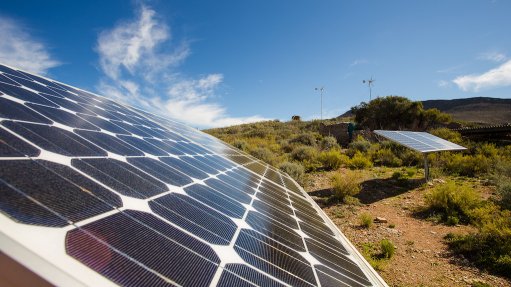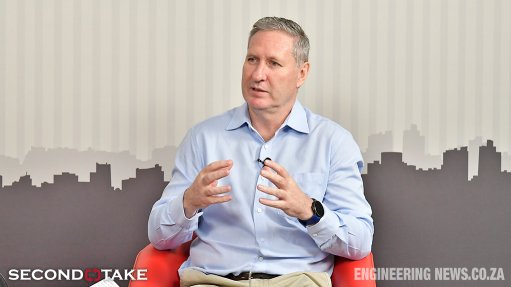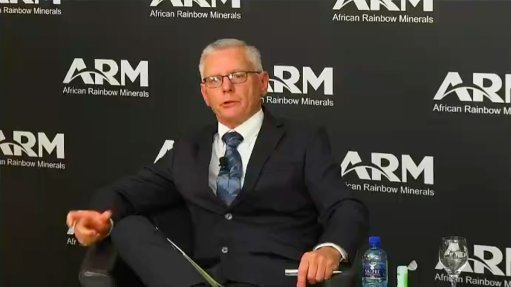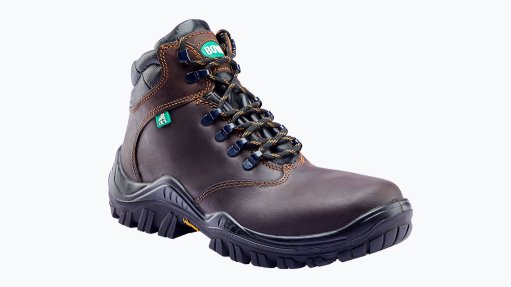Protecting Nature’s Clean-Up Crew Critical for All Species
This article has been supplied and will be available for a limited time only on this website.
The protection of vultures is critical for the role they play in our environment, as well as the irreplaceable ecosystem services they provide for all species.
Without vultures, Africa faces a silent crisis. These birds are nature’s most efficient clean-up crew, preventing the spread of deadly diseases that threaten wildlife, livestock, and people. Yet across the continent, vulture populations are collapsing at unprecedented rates, mainly as a result of intentional and unintentional poisoning, as well as the impacts of energy infrastructure. Species that are often thought of as widespread, such as the White-backed Vulture, have undergone population declines of between 63 – 89% over the last three generations, with much of this change having gone mostly unnoticed.
Today the Endangered Wildlife Trust joins organisations across the world in marking International Vulture Awareness Day (IVAD); a day initiated by the EWT in South Africa and the United Kingdom, which has now grown into a global movement, shining a spotlight on these critically important, yet often misunderstood, birds. The purpose of IVAD is to raise crucial awareness about the plight of vultures and the urgent need to conserve them.
As nature’s clean-up crew, they consume carcasses quickly and efficiently, reducing the spread of deadly diseases to both wildlife and people. The Asian Vulture Crisis, spanning the 1980s and 1990s, saw declines of over 99% in the population of vultures in this landscape. Subsequent research has shown that the loss of these birds resulted in a four percent increase in total human mortality rates. Today it serves as a warning of what may happen should Africa follow a similar path. Protecting vultures is, therefore, a matter of protecting biodiversity, ecosystems, and people.
The threats vultures face
Vultures are among the most threatened groups of birds in the world. Across Africa, their numbers are declining at alarming rates, driven largely by a range of threats. Although the impact of each of these is variable, wildlife poisoning consistently stands out as the most significant. Beyond the impacts of wildlife poisoning and energy infrastructure, additional contributing factors include:
Vultures are also threatened by:
- Persecution due to negative perceptions and belief-based use.
- Loss of habitat as natural landscapes shrink under pressure from human expansion.
- Disturbance of nest sites because of increased activity in protected areas.
- Drowning in unsafe water points such as farm reservoirs.
Without urgent intervention, Africa risks losing these vital species within our lifetimes.
What the EWT is doing
The EWT is at the forefront of efforts to secure the future of vultures and other birds of prey in southern Africa. Our work spans a variety of focal areas, and during the last year has included:
- Rapid response to poisoning incidents where, with the assistance of our partner organisation, Moholoholo Wildlife Rehabilitation Centre, have saved 104 vultures from near certain death.
- Through the application of technology, we have detected 20 significant wildlife poisoning incidents that otherwise may have gone unnoticed, as well as 11 poisoned bait sources that were found early enough to not result in further mortality of wildlife.
- We’ve investigated and mitigated over 80 incidents on energy infrastructure, working towards these sites not remaining a threat within the landscape.
- Monitoring and research to better understand vulture movements, breeding, and survival.
- Proactively working towards improved policy and guidelines for vulture conservation, including development of standard operating procedures for poisoning response, the treatment protocols of poisoned wildlife, as well as contributing to national implementation of conservation action through the National Vulture Task Force.
However, the conservation of these birds is not something that should be looked at as something done by organisations in isolation. Everyone has a role to play in protecting vultures.
To join us in ensuring a secure future for all vultures, one of the steps members of the public can take is to report any suspected poisoning incidents, injured birds, or wildlife crime to local authorities such as South African National Parks (SANParks), provincial nature conservation authorities or the EWT immediately.
By embarking on small but meaningful actions, members of the public can help ensure that vultures are celebrated, protected, and given the chance to thrive for generations to come.
The EWT calls on the global community to stand with us in celebrating and protecting vultures. Together, we can ensure that these remarkable birds continue to soar across our skies for generations to come.
Comments
Press Office
Announcements
What's On
Subscribe to improve your user experience...
Option 1 (equivalent of R125 a month):
Receive a weekly copy of Creamer Media's Engineering News & Mining Weekly magazine
(print copy for those in South Africa and e-magazine for those outside of South Africa)
Receive daily email newsletters
Access to full search results
Access archive of magazine back copies
Access to Projects in Progress
Access to ONE Research Report of your choice in PDF format
Option 2 (equivalent of R375 a month):
All benefits from Option 1
PLUS
Access to Creamer Media's Research Channel Africa for ALL Research Reports, in PDF format, on various industrial and mining sectors
including Electricity; Water; Energy Transition; Hydrogen; Roads, Rail and Ports; Coal; Gold; Platinum; Battery Metals; etc.
Already a subscriber?
Forgotten your password?
Receive weekly copy of Creamer Media's Engineering News & Mining Weekly magazine (print copy for those in South Africa and e-magazine for those outside of South Africa)
➕
Recieve daily email newsletters
➕
Access to full search results
➕
Access archive of magazine back copies
➕
Access to Projects in Progress
➕
Access to ONE Research Report of your choice in PDF format
RESEARCH CHANNEL AFRICA
R4500 (equivalent of R375 a month)
SUBSCRIBEAll benefits from Option 1
➕
Access to Creamer Media's Research Channel Africa for ALL Research Reports on various industrial and mining sectors, in PDF format, including on:
Electricity
➕
Water
➕
Energy Transition
➕
Hydrogen
➕
Roads, Rail and Ports
➕
Coal
➕
Gold
➕
Platinum
➕
Battery Metals
➕
etc.
Receive all benefits from Option 1 or Option 2 delivered to numerous people at your company
➕
Multiple User names and Passwords for simultaneous log-ins
➕
Intranet integration access to all in your organisation


















